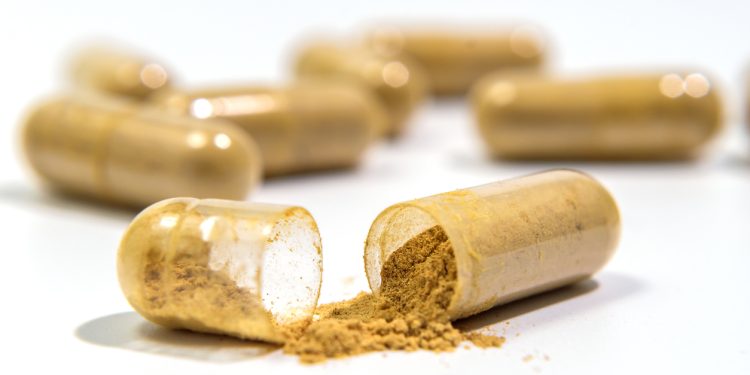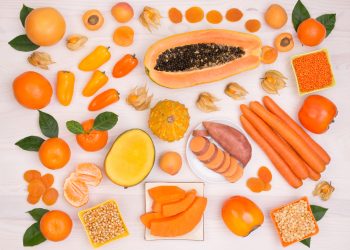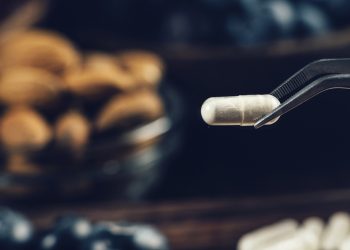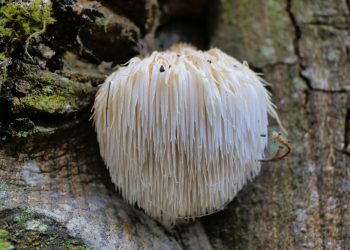As an organ meat company that aims to deliver underrated nutrients to the people, we’re well aware that gelatine is all the rage right now. And rightly so! Gelatine is nature’s very best source of glycine, a highly relaxing amino acid that nourishes joints and promotes muscle growth.
Why, then, do we choose to encase our supplements in vegetarian caps over their gelatine counterparts?
Several reasons. For one, utilising vegetarian caps makes our mission to stay glyphosate-free possible! Gelatine caps, on the other hand, are apt to be contaminated with this harmful additive. Keep reading to learn more.
- Gelatine 101
- Gelatine & glyphosate contamination
- Glyphosate: what makes it so dangerous
- Glyphosate and joint pain: a hidden link?
- Why vegetarian caps are superior to gelatine ones
Gelatine 101
As a nutrition-centric company that supplies thoughtfully-sourced animal products to our community, we can see why gelatine is in the spotlight. It contains an amino acid called glycine — the real star of the show. Without this compound, gelatine is void of any true benefits. Even its protein is incomplete, meaning the body can’t actually absorb it.
Moreover, mainstream gelatine comes with harmful downsides:
- Quality standards for gelatine capsule production are anything but streamlined, leading to inconsistent durability and dosage.
- Gelatine can cause indigestion, burping, bloating, or upset stomach in some — not to mention allergies and hypersensitivity!
- Over-consumption of gelatine can lead to kidney or liver damage and is especially unsafe for those with pre-existing conditions. [1]
As if these meaty cons aren’t more than enough reason to steer clear, gelatine is also highly susceptible to contamination by a super-toxic herbicide called glyphosate. More on that possibility next.
Gelatine & glyphosate contamination
So, what is glyphosate? Simply put, it’s the active ingredient in Round-Up that allows us to conveniently control dandelions or kill weeds coming up out of the pavement. Almost no plant can withstand it — except GMO crops that have been specifically engineered to, of course.
Most cattle feed is made up of genetically modified corn or soy that has been heavily sprayed with this silent killer. Its manufacturer, Monsanto, convinced authorities over four decades ago that it is completely non-toxic despite its deadly reputation, so it remains unregulated. [2]
Once ingested by a cow, glyphosate insinuates itself into its collagen by swapping itself for glycine during a series of chemical reactions called “protein synthesis”. Gelatine is then “cooked” from this dangerous collagen and routinely added to popular foods such as:
- Marshmallows
- Gummy bears
- Pudding
- Frosting
- Cream cheese
- Sour cream
- Margarine
- Non-dairy creamers
- Fat-reduced products
Gelatine is also the main constituent of gel caps — a standard mode of packaging for both pharmaceuticals and nutritional supplements. No matter how healthy a substance is, the morsel is apt to cause more harm than help if it is contained in a glyphosate-contaminated gel cap.
The sheer number of ways this herbicide appears to be able to wreak havoc on our health is almost impressive! So, what are they?
Glyphosate: what makes it so dangerous
Glycine is involved in many metabolic and biochemical processes, and protecting our gut lining is one of them! When glyphosate is present, though, swallowing gelatine is counterproductive to that purpose.
Once this herbicide finds its way into your stomach, it skews the balance of bacteria that live there. It acts upon them with the same metabolic process that allows it to decimate Chickweed and other unwanted plants in your garden. In fact, many of your most vital microbes share that same shikimate pathway! [3] Not good.
Swapping itself out for normal metabolic intermediates, it passes as an essential component of a cell and stands in for it, which is disruptive, damaging, and downright dangerous for the organism it calls home.
Besides the gut, how bad can it get?
MIT Research Scientist Stephanie Seneff, who is an expert on the subject, says she and her colleagues foresee this going a step further by chelating essential minerals such as manganese, cobalt, and iron and interfering with liver enzyme function, sulfate synthesis, methionine synthesis, and — central to our topic — glycine synthesis and placement. [4]
They believe that, through these mechanisms, chronic consumption of glyphosate could contribute heavily to serious health problems such as:
- Asthma
- Alzheimer’s
- Addison’s
- ALS
- COPD
- Diabetes
- Glaucoma
- Hypertension
- Hypothyroidism
- NHL
- Obesity
- Pulmonary Edema [5]
That’s not all! Time to swing the focus back to our trending amino acid.
The sad truth about glyphosate and glycine
Not only does glyphosate prevent you from receiving your promised dose of glycine from a gelatine cap, but it displaces what’s already there. Talk about a counterproductive health practice— a double-negative!
Glyphosate almost mimics a complete glycine molecule, with the sole difference being that a methyl phosphonyl group has displaced a hydrogen that would typically be attached to the nitrogen atom. Due to similarities in the structure of the two molecules, the ribosome of a cell might often mix them up during the process of protein synthesis.
According to Dr Seneff, glyphosate’s disruption of pathways that usually involve glycine is likely a large part of its toxicity profile— though she was skeptical of this idea at first, stating: “The thought had crossed my mind that glyphosate might substitute for glycine during protein synthesis, but I had rejected the idea because I mistakenly believed that the presence of a side chain on the nitrogen atom would prevent glyphosate from joining hands in the paper-doll-like chain.”
Once she realized what a sloppy process, protein synthesis really is, she completely changed her paradigm. A cell will take a chance on small mistakes, she explains, and save its alarm bells for big stuff such as protein functional failure or major misfolding. Rather than fix every flaw, a little messiness has allowed this manufacturing process to survive.
Now that glyphosate has entered the mix, the tides have turned. A study on how glyphosate affects protein expression produced strong evidence that it significantly ups the frequency of small errors during this process. [6]
Enough wee mistakes and a whole foundation can crumble!
Glyphosate and joint pain: a hidden link?
Collagen is loaded with glycine, and humans are loaded with collagen! It’s what gives our skin, joints, and bones elasticity and strength, and it’s the most abundant protein in our bodies. When you ingest gelatine, you are taking a risk that might cause painful consequences in these areas.
In the words of Dr. Seneff, “If you start randomly inserting glyphosate in place of glycines […], you will disturb the crystalline structure and wreck the collagen properties of elasticity, strength and the ability to retain water. This will almost certainly result in joint pain, a major contributor to the opioid epidemic we’re currently witnessing in the U.S. Rheumatoid arthritis, osteoporosis and various skin disorders can all be anticipated.”
Could gel caps be the cause of your achy knees? Learn more about the dangers of glyphosate here.
Why there are better sources of glycine
Acting as a precursor for metabolites such as creatine, glutathione, haem, purines, and porphyrins, glycine functions as both a building block for proteins throughout the body and an inhibitory neurotransmitter. [7]
The only way to get this important amino acid into our bodies is to ingest it, and the typical diet of a European is generally not a sufficient source. No wonder it’s sought-after! Though it wields many health benefits, the majority of consumers are seeking it out to help synthesise creatine in their muscles and collagen to support their skin, joint, and bone health. That, and for its wicked-calming effects on the central nervous system!
So, how can one swallow this compound without chancing toxicity? Since any commercially-produced high-gelatine food is probably teeming with glyphosate, the only way to guarantee you’ll get the glycine you seek without toxic consequences is to stick to grass-fed bone broth, oxtail, and other gelatinous parts of organic animals. Oh, and organs!
Why vegetarian caps are superior to gelatine ones
To summarise, you’d best avoid gel caps. How, then, should you take your supplements?
We suggest capping them in a plant-derived polysaccharide! Better known as veg caps, these are at significantly lower risk of contamination. At Hirsch Organics, take herbicide avoidance seriously, packing 100% organic pure beef organ meat into veg caps that are always glyphosate-free.
It’s true: Hirsch Organics is now certified Glyphosate Residue-Free by The Detox Project.
Just to recap:
- Gelatine is commonly used to encase supplements.
- Gelatine should contain high amounts of glycine.
- Glycine is a hot item in the health world!
- Gelatine is at high risk of glyphosate contamination.
- Glyphosate is a herbicide sprayed on GMO crops.
- Glyphosate insinuates into cattle collagen once eaten.
- Glyphosate can displace glycine during protein synthesis.
- Glyphosate may cause gut disharmony and many conditions.
- Glyphosate may be at fault for joint problems and pain.
- Grass-fed, organic animal parts are at low risk of contamination.
- Vegetarian capsules are a much safer alternative to gel caps.









